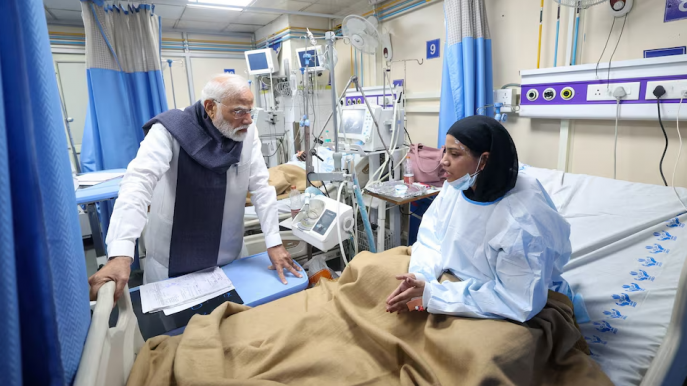Nepal’s growth expected to slow in FY26 amid political transition: World Bank
 Kathmandu : Nepal’s economic growth is expected to slow sharply to 2.1 percent in FY26 from 4.6 percent in FY25, reflecting the impact of the September 2025 unrest and ensuing political instability, according to the World Bank’s latest Nepal Development Update released on Thursday. The report, titled ” Nepal Development Update: Reforms to Accelerate Public Investment ,” highlights that the services sector, a key driver of Nepal’s economy, is likely to be the most affected.
Kathmandu : Nepal’s economic growth is expected to slow sharply to 2.1 percent in FY26 from 4.6 percent in FY25, reflecting the impact of the September 2025 unrest and ensuing political instability, according to the World Bank’s latest Nepal Development Update released on Thursday. The report, titled ” Nepal Development Update: Reforms to Accelerate Public Investment ,” highlights that the services sector, a key driver of Nepal’s economy, is likely to be the most affected.
The Bank described the outlook as “highly uncertain,” noting that much depends on how smoothly the political transition unfolds.”On the upside, a successful political transition and sustained sound economic management could strengthen investor sentiment supporting a stronger economic recovery. On the downside, continued uncertainty could weaken investor sentiment,” the update stated.
During the release of the report, Finance Minister Rameshore Prasad Khanal said the government had launched an Integrated Business Recovery Plan to restore business confidence and accelerate recovery.”The government has launched an Integrated Business Recovery Plan, offering grants, tax incentives, and operational support,” he said. “Public resources have been reprioritized toward infrastructure rehabilitation and election preparations, and a Reconstruction Fund has been established to help restore damaged public and private assets.
These initiatives aim to reinvigorate private sector activity while laying the foundation for a more resilient economy.”According to the report, reconstruction progress and better policy execution are expected to support a rebound in growth to 4.7 percent in FY27.Beyond short-term recovery, the World Bank emphasized the need for stronger public investment management to achieve sustainable growth.
In FY24, Nepal’s capital expenditure across all government tiers stood at 7.9 percent of GDP-significantly below the 10–15 percent needed to meet the country’s infrastructure goals.”Boosting public investment is critical for improving growth, creating jobs, and building prosperity for Nepalis,” said David Sislen, the World Bank’s Division Director for Maldives, Nepal, and Sri Lanka.
“This requires implementing key reforms including strengthening project planning and budgeting, streamlining land acquisition, improving cash management, and amending procurement laws to speed up project delivery.”The Nepal Development Update, published twice annually, provides an analytical overview of key economic trends and policy developments in the country, placing them in a broader regional and global context.




